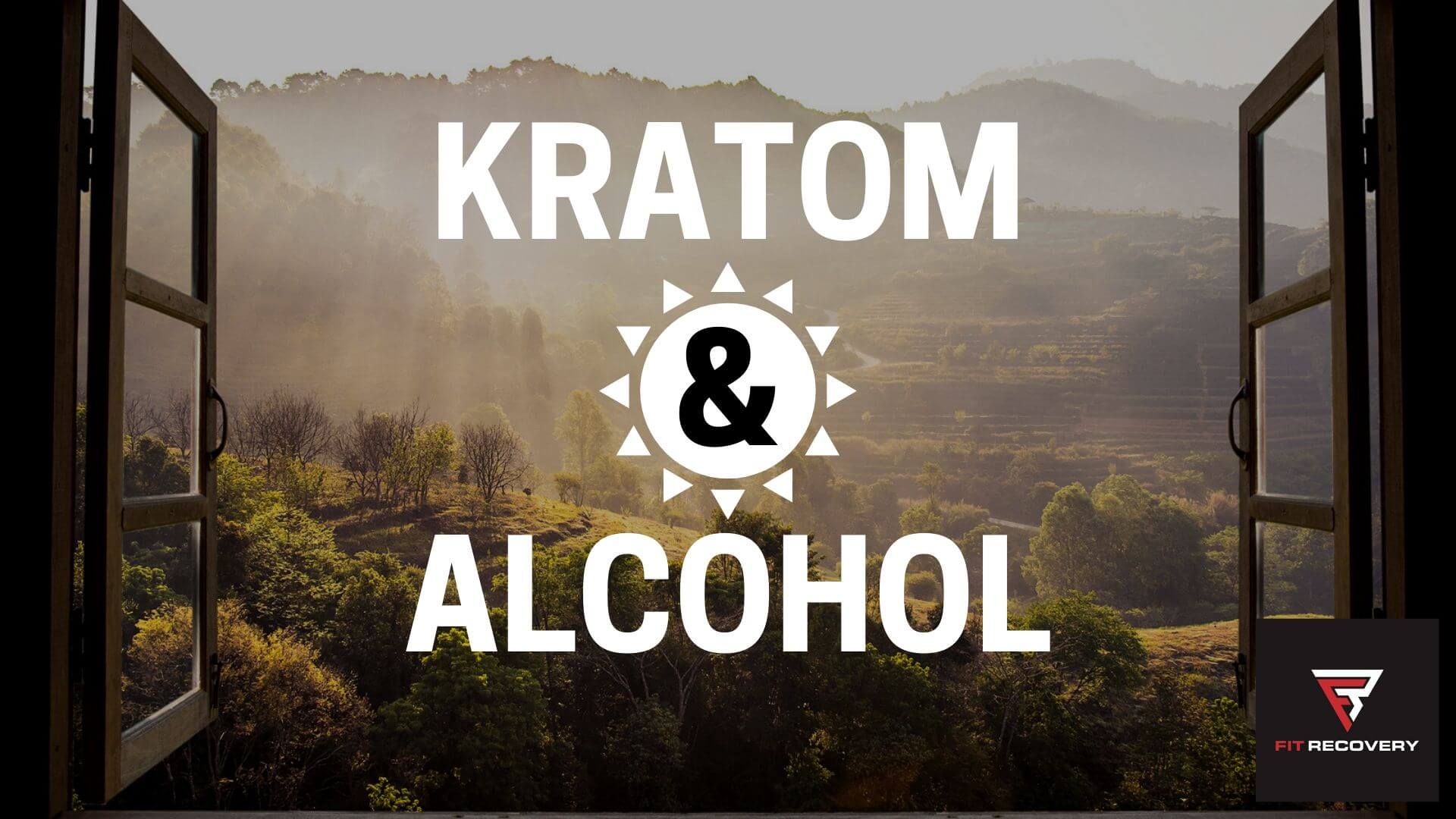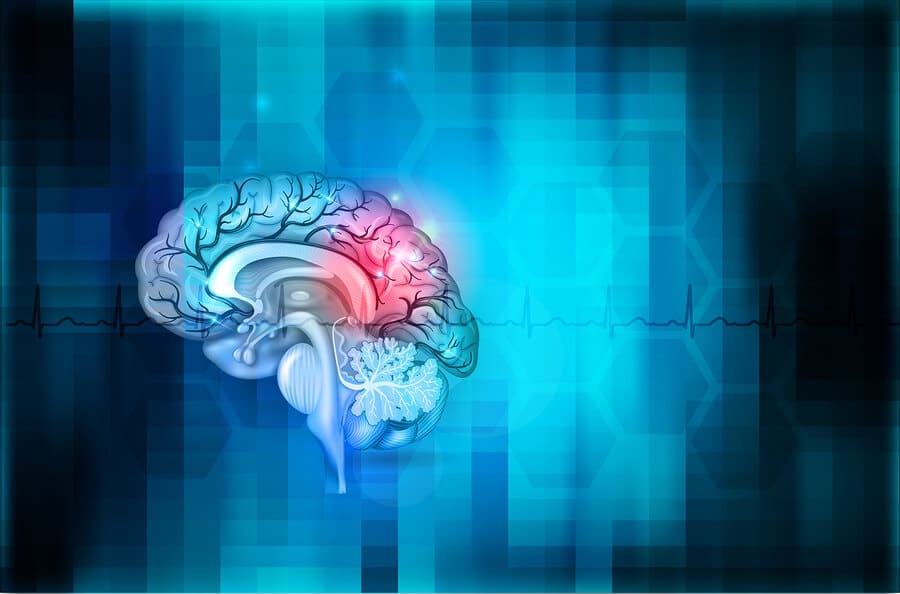This article will answer a number of questions that I’ve come across about kratom and alcohol. Specifically, I will answer the following questions to the best of my ability:

As a teetotaler who recovered from a severe addiction, and as a fan of kratom – which is the most fascinating plant I’ve ever consumed – I have a unique perspective on these questions.
Augmenting my personal experience, I did two years of independent research on alcohol before writing my eBook, and I’ve been reading everything I can find on kratom for well over a year.
I’ve used it about 30 times since I first tried it a year ago. While I’ve enjoyed it a lot, I’ve never felt even remotely “hooked” on this plant. Since the subject of chemical dependence is something I’ve studied intensely since quitting, I will spend some time here discussing how the risk of dependence on kratom could be mitigated.
If your goal is to learn more about this as an option to help you quit drinking, you will find all the information you need in my article: How To Use Kratom For Alcohol Withdrawal.
In case you’re unfamiliar with kratom, the aforementioned article also gives an extensive overview of this plant. Refer to that article for information about the history, biochemical properties, and tips on using it to wean off of alcohol.
Effects
Overview and Effects
Kratom (mitragyna speciosa) is a plant from Asia that is a member of the coffee family.
Like coffee, this plant can cause stimulation and euphoria.
Unlike coffee, it contains two natural alkaloids that are partial opioid agonists. These alkaloids, mitragynine and 7-hydroxymitragynine, stimulate some of the brain’s opioid receptors. In my experience, the effects are similar to the release of endorphins from working out or other pleasurable activities:
- Mood boost
- Enhanced relaxation
- Heightened focus
- Improved sociability
The effects depend on the strain that is used, the amount consumed, and the biochemistry of the person who consumes it.
In contrast to harsh drugs that detach people from reality, this plant tends to create a feeling of heightened consciousness and enhanced sense of well-being.

If you try to chase a “high” with kratom, you’re going to end up with the exact opposite: an aching head or stomach, and the fading out of any positive effects you might have experienced.
Since it mainly stimulates the brain’s delta opioid receptors, it is not technically an opiate. Opiates known for their addictive potential – like hydrocodone or methadone – fully activate all of the brain’s opioid receptors and act powerfully on the mu receptors:
- Mu Receptors – Stimulation produces pain relief, euphoria, sedation, constipation, respiratory changes, addiction, hormonal alterations
- Kappa Receptors – Stimulation produces pain relief, dysphoria, sedation, respiratory changes, constipation
- Delta Receptors – Stimulation produces mainly pain relief
Kratom can only stimulate mu and kappa receptors in large doses.
This plant’s addictive potential seems to be mitigated at least in part by the fact that most people cannot stomach large amounts of it without experiencing headaches or nausea.
Moreover, using the same strain for too many days in a row results in resistance to the effects of that strain. This resistance cannot be overcome by simply increasing the dosage.
The strains fall into three main categories, whose effects can be predicted with some accuracy (despite individual variations) by the color of the veins running through the leaves:
- Red Vein – Relaxing effects
- White Vein – Energizing effects
- Green Vein – Relaxing and/or energizing effects
Using one strain for too many days in a row can cause the receptors targeted by that strain to become resistant to further effects. This has led some people to conclude that it “stopped working” for them.
This dilemma could be solved by careful strain rotation. For people who do not need to use kratom every day, this tolerance limitation is just another reason to save this plant for special occasions.
As with drinking, some people may be biochemically resistant to the effects of kratom or even intolerant of it entirely.
Unlike alcohol, it does not contain toxins that cause bodily damage.
Consuming too much of it can result in the following side effects:
- Headaches
- Stomach aches
- Anxiety
- Sedation
I have never gotten a headache or stomach ache from it, but I did feel hyper-aware on one occasion and groggy on another. The former experience was identical to chugging too much espresso at once. I had taken about 8 grams of an energizing strain in an intentional attempt to identify the effects of consuming a large dose.
My tolerance is quite low, which is intentional. I find that I get the best effects from 2-4 grams.
Millions of Americans have used kratom to get off opiates, and a growing number of people have used this plant to get off of alcohol.
While low-quality kratom vendors have killed several people by lacing it with fentanyl (a powerful opiate), there have never been any deaths solely attributable to this plant.
Overview Of Drinking And Its Effects

Next to caffeine, alcohol is the most socially acceptable drug in Western culture.
Alcohol is produced by the fermentation of sugar, and in fact it is a highly refined sugar. Its effects on the human body are vast and varied, depending on the biochemistry of the person who consumes it.
The liver breaks down alcohol into water, acetic acid, and acetaldehyde. This last compound is a poison that is responsible for hangovers and free radical damage to bodily cells.
Alcohol is a central nervous system depressant because it is very similar in structure to GABA, which is the brain’s primary calming neurotransmitter.
Ethanol that reaches the brain plugs into GABA receptors and thereby depresses the nervous system. Its effects on the brain are far-reaching and include the release of endorphins. The glowing euphoria that results is similar in my experience to the positive effects of kratom.
Because of alcohol’s toxicity, positive effects are short-lived and clouded by side effects like confusion, sedation, emotional volatility, and next-day malaise.
Research shows that alcohol actually stimulates the brain’s mu and kappa opioid receptors. (source)
Because of biochemical individuality, different people respond to drinking in different ways. I became addicted very quickly and at a relatively young age.
Alcohol’s primary effects on me included:
- Energy boost
- Sense of invincibility
- Severe cravings
- Withdrawal symptoms
In contrast to my experience, most people experience the following effects from drinking:
- Relaxation
- Euphoria
- Sedation
- Hangovers
Alcohol’s addictive potential seems to strongly correlate with individual biochemical makeup, which is determined by genes – and which are, in turn, activated by environmental factors.
About 88,000 Americans die each year of alcohol-related causes. (source)
A Good Combination?

For people with a biochemical makeup much different than mine, there is little evidence that combining kratom with alcohol is inherently dangerous.
Many people who use this plant for withdrawal have reported that they took it along with alcohol and that over time their desire to drink diminished to a negligible level.
For social drinkers, consuming kratom before drinking may help them drink less – and thereby save money, cut calories, and avoid premature aging.
However, care should be taken when mixing alcohol for several reasons:
- A central nervous system depressant
- Can have mild sedative or stimulant properties
- Known to amplify the effects of alcohol
This last point is the most pertinent, as I learned recently when I gave some friends at a bachelor party some kratom. We all enjoyed some tea, and then they got involved in a drinking contest. Both of them threw up for hours that night. I’m not convinced that it wasn’t the alcohol’s fault, but simply put, it seems that Kratom + Heavy Drinking = Vomiting.
It’s dangerous to combine alcohol with opioid drugs like hydrocodone, which have strong sedative properties. However, there is no evidence that kratom causes serious complications when mixed with alcohol.
The Red Bull and vodka craze attracted negative attention because caffeine is a powerful stimulant that masks intoxication, leading people to drink too much. Kratom tends to amplify alcohol’s effects and act as a deterrent to further drinking.
If it doesn’t act as a deterrent the first time, it probably will after someone consumes kratom and then has 20 drinks and throws up (like my two friends).
I have a feeling that someone will eventually mega-dose both kratom and alcohol, causing an overdose that will be blamed on this plant because it is less socially understood.
Personally, I think drinking sucks and I have no desire to combine kratom with alcohol.
But I do think this combination is relevant for people who want to cut down on drinking with the help of kratom, or social drinkers who are simply curious about the interaction.
Because of the variety in strains, the exact effect of combining these will depend on which strain is used (and how much).
The fact that a low dose of kratom (2-3 grams) can make one drink feel like several drinks is a double-edged sword. On the one hand, careless combiners may experience worse side effects from drinking.
Some Reddit posters have reported that kratom makes hangovers feel worse. This could be a result of excessive opioid receptor stimulation, or perhaps evidence that kratom hinders the metabolism of alcohol in the liver.
But for people who are trying to use it to cut down on alcohol, the reduced craving may be a welcome phenomenon. It may allow people to drink less and therefore do less damage to their bodies by gradually substituting kratom instead.
Once these people get off of alcohol, it will be much easier for them to taper off of this plant than it would be to simply quit drinking!
I’ve even been told by some people that it was their last best hope for quitting drinking and that it worked after everything else failed.

Either way, if you decide to combine them, it makes sense to consume kratom first.
Why does this matter? Once a certain amount of liquor has been ingested, it cannot be adjusted to account for the potentiating effects of kratom. In other words, if you drink 10 beers and then down a heaping tablespoon of kratom, you’re much more likely to feel sick!
Effects of Strains
Given my experience with alcohol, I’m very careful about what I put into my body.
I almost gave up on sampling kratom from other online vendors, so I’m very glad that I found PurKratom.
While I have never combined these substances myself, PurKratom is a great company to purchase from if that is your goal.
The kratom from PurKratom is reliable, super fresh, organic, and never cut with any other products.
My preferred method of consuming it is to make tea. I do this by pouring boiling water over 1 teaspoon of powder (2.3 grams) in a mug, stirring with a spoon, and sipping slowly over the course of 30 minutes.
I used to use a French press to avoid drinking excess plant matter. Then I discovered that the kratom from PurKratom is so fine that most of it dissolves in boiling water. The very small amount of grainy plant matter does not bother my taste buds or my stomach.
Note: If you place a first-time order from PurKratom, you can save 25% by using this promo code: RECOVERY
Dependence & Regular Use
Nearly every article on my site deals with addiction, which is brutal and sometimes fatal. I also offer many pages of thoughts about the biochemical root causes of alcoholism in my book.
While I’m not sure whether anyone is dependent on both, there are millions of Americans who are addicted to drinking and a smaller number who are dependent on kratom.
For people who manage pain or psychological disorders, kratom dependence is part of a trade-off that they gladly accept in order to avoid harsher drugs.
Regarding “negative consequences” that are prerequisites for defining an addiction, comparing kratom and alcohol is like comparing apples to grenades.
As a “regular user” of alcohol, I drank too much every single time I drank. Over time, both the frequency and amount of drinking steadily increased.
I’m not a daily user, but I’ve used it enough to notice some striking differences in its effects versus alcohol:
- Pleasant effects reach a plateau that won’t get “better” by increasing dosage
- Level-headed calmness, motivation, and enhanced sociability
- No irrational “high” or lowered inhibitions
- No physical or psychological cravings
- It’s difficult to pinpoint exactly when the effects of kratom wear off
- Sipping too much too quickly makes its effects worse, not better
This last point is crucial: On occasions that I decide to consume this plant, I actually use about 1/4 of the amount that I did when I began experimenting with this plant.
At the same time, there’s no doubt in my mind that using it every day for a year or more would cause an increase in my tolerance.
Anything that affects neurotransmitter levels has the potential to cause dependence.
This includes caffeine, sugar, nicotine, and exercise, all of which are common dependencies for people who call themselves recovering addicts.
My morning productivity is dependent on caffeine, which I consume in the form of coffee and yerba mate. My mood is dependent on the endorphin release that I get from lifting heavy weights, and on the vitamin D that I get from spending time in the sun on a near-daily basis.
I’m dependent on the oxytocin release that I get from spending time with family and friends. I’m psychologically dependent on my night time routine, which involves drinking chamomile tea and reading myself to sleep.
I like using kratom on special occasions. But I don’t have room in my life for another “thing” that I feel like I have to do in order to be calm, happy, productive, etc.
Besides the burden of dependence of any kind, the major drawback of daily kratom use is the possible desensitization of endorphin centers over time.
I definitely don’t want to feel less stimulated by activities that release endorphins, especially hard workouts!!
With all of that said, I have used it for up to two weeks at a time and felt absolutely nothing when I’ve stopped using it. (I will not use the same strain for multiple days in a row, and so I will rotate strains if I decide to use for two days in a row.)
The only thing I’ve noticed is that I feel slightly sharper and fresher when I haven’t used kratom in awhile, perhaps because my brain-body system is repaired and I feel pretty good all the time.
During special events like weddings, I’ve often made some tea beforehand. I honestly think I’ve had a better time on those occasions than people who were drinking alcohol!!
After you’ve been teetotaling for awhile, it’s both weird and funny to watch people lose their wits progressively throughout the evening, all for the sake of a socially acceptable CNS depressant that will make them miserably hungover the next morning while you’re outside running sprints and feeling alive.
Enough about alcohol – what about people who use kratom every day for months at a time?
Here’s an interesting anecdote from David DiSalvo, a bestselling author who conducted a prolonged kratom experiment on himself and wrote about the side effects of quitting kratom versus the side effects of quitting coffee:
As to the results of stopping usage, I can tell you without hyperbole that getting off coffee is a far worse experience than getting off Kratom. I was able to stop taking it for three days and at most I experienced a bit of sluggishness that wore off in a day or so. Withdrawal from coffee, for me, includes at minimum two days of excruciating headaches that make me want to rip trees from the ground and toss them through store windows (something I’ve never actually done, mind you). Suffice to say, caffeine withdrawal is significantly worse than Kratom withdrawal, if it can even be called “withdrawal.” There’s no comparison whatsoever. (source)
Most daily kratom users consume around 10 grams per day with minimal side effects. Many of these people need it to manage chronic pain or depression, and for them, it is a natural alternative to medications with harsh side effects.
We live in a society that has normalized the administration of synthetic amphetamines to restless kids, who too often go on to become dependent on antidepressants and anti-anxiety medications. Our culture revolves around the consumption of ethanol, a carcinogenic toxin.
I don’t think that such a culture has legs to stand on when it tries to object to plant-based mind alteration that is demonstrably safer than substances sanctioned by mainstream norms.
An honest regard for mind-alteration is not the same thing as addiction. Norms change; human nature remains.
You can find a fascinating account of the universal drive for mind-alteration in a book called Intoxication, which explores the quest of humans, apes, birds and even insects to alter their consciousness with compounds naturally found in their environment.
On that note, reading is a very powerful and pleasurable form of mind-alteration.
I built this website, in large part, with knowledge that I gained from reading every single night since I quit drinking.
Instead of denying that I engage in mind-alteration, which I do every time I work out, drink coffee, lay out in the sun, or make kratom tea – I seek to incorporate a balance of healthy activities and natural herbs that work together to bring out my full potential in life.
There is a profound difference between mind-alteration geared toward life-enhancement and mind-alteration devised to escape reality or obliterate the self.
A further distinction also must be made to account for substances that cannot achieve anything except escape from reality, and which cause massive distortions in the brain-body system.
Heroin and cocaine are clearly a bit different from coffee and kratom. Given alcohol’s toxicity, I’m doubtful as to whether it and alcohol belong in the same category.
Still, anything taken in excess for an extended period of time can distort our biochemistry.
A few years after I quit drinking, I had to reevaluate the amount of coffee I drank because it was causing anxiety and insomnia. I cut down by switching after two cups to yerba mate tea.
I believe that the vast majority of people who use this plant can avoid dependence by respecting their brains:
- Use the minimum effective amount
- Get endorphin release from a variety of activities
- Don’t make it a pillar of your routine (except for chronic symptoms)
Since even most regular users instinctively abide by these simple pointers, I don’t think we’ll be hearing about a kratom epidemic anytime soon.
If you’ve never had it and you’d like to sample it for the first time, I highly recommend going with the Green Maeng Da and a variety pack from PurKratom.
The Bottom Line
I hope that you’ve enjoyed this article. I think we’ve covered enough ground to answer the questions I initially posed in the beginning.
The bottom line is that this plant can be a fantastic herb for getting off of more damaging substances and for occasional life enhancement.
If you used to drink too much, kratom should be just one out of a large number of tools in your arsenal for getting the most out of life.
My perfect day does not involve this plant, but it does involve lifting weights, going to the pool or the beach, doing some writing, and spending time with close friends.
Years ago, I desired to escape reality as hard as I could – but I resolved that by finding a purpose.
If you drink too much and you’re looking into becoming a teetotaler like me, then you’ll enjoy the following resources:
- How To Use Kratom For Alcohol Withdrawal
- Top 20 Supplements For Detox and Recovery
- Top 10 Remedies For Sleep After Quitting Alcohol
- Alcohol Withdrawal Timeline And Body Repair Tips
- Total Alcohol Recovery 2.0
If you have any questions, please leave them in the comment box below.












Love 99% of your advice, like legit. Someone discussing supplements to help with acute/post acute withdrawal is grately needed and in my opinion will be a massive area of growth as we advance our understanding of recovery and move away from punitive psychosocial interventions. I’m however also struggling with you recommending kratom. On Reddit one of your clients discussed using kratom daily for many weeks. As with any partial opiode aganist, a certain part of the population is going to become physically dependant. Also, many alcoholics are poly drug users, and a percentage have been treating their historical opiate habits… Read more »
Hi Mac, thanks for your input. I don’t provide blanket recommendations for any specific strategy, and I try to emphasize that everyone is biochemically, psychologically, and spiritually different. Some people should not use kratom. But everyone should be informed about both the pros and cons of all potential courses of action. I know a few people who have become addicted to kratom, and I also know many people who have used it responsibly and short-term as part of a holistic plan to get off of alcohol. I’ve only used kratom for short durations because I’m aware of the risks of… Read more »
I absolutely love this response thank you so much. Keep up the good work.
I might try it again one of these days. For now samE, omega 3 and passionflower have basically obliterated cravings and PAWS. Thank you for all you do.
Disclaimer: I’m a physician (doctor) who is intensely interested in the use of “alternative” and even illicit substances for both treating very real medical conditions as well as for occasional recreational use. I’m not discounting what this post is saying (I myself have regularly used kratom in the past and loved it along with many other substances I really shouldn’t talk about now that I’m a doctor). However, I do have a warning. Kratom is ABSOLUTELY habit forming because of its partial agonist (activation) of endogenous opioid receptors. I used to think kratom was harmless (and took it every day… Read more »
Thanks for your expert input Mina! I 100% agree that kratom is not benign. Some people do seem to get severely addicted to it.
I’ve seen it help a LOT of people quit drinking, as it almost miraculously eliminates cravings. But I’ve always told people to use the “bridge” period between alcohol and kratom as a time in which to fill their schedules and lives with all sorts of healthy things, so as not to develop a dependence on kratom.
I use kratom very infrequently, at super low doses. Very interested to hear about your clinical research going forward!
I enjoyed your article…I think it was very factual and informative. I also like how you emphasize not using this daily as a way to “check-out” or escape reality. Thankyou! Valerie F.
Hi, I’m on cipralex (ssri) for anxiety, my doctor has recently prescribed me topamax. I just bought some CBD which is a true miracle so far thank you for recommending. Can I also take Kratom? I know I can’t take the calm support since I take SSRI. Thanks
Great to hear that the CBD helped you! I do not know of any interactions between kratom and SSRIs, but it’s best to ask a doctor first. My personal philosophy of supplementation is always to discover a minimum effective dosage and increase if necessary. Good luck to you!
No disrespect but how can you draw a conclusion after only using it 30 times?. I have used it years off and on. Different strains, different companies. Also you have to consider if a person is on dr prescribed meds. I also has a bad reaction to a strain called Malay. My blood pressure went extremely high in a deathly range. We are all different. Although it does help me with issues. My point being is maybe you should test a little more and try different brands.
My goal was to find a brand that I trusted, not to assess the multitude of brands out there. I did not like kratom until I found Top Extracts.
People respond differently to kratom strains and vendors. I could test every strain from every brand 1,000 times, and my opinion would still not guarantee that anyone would share my preferences.